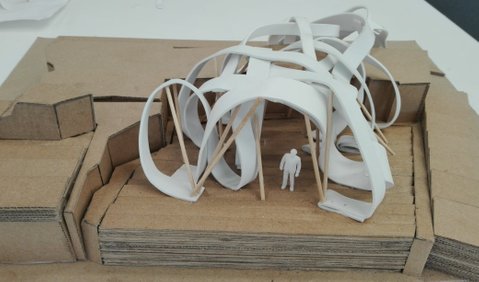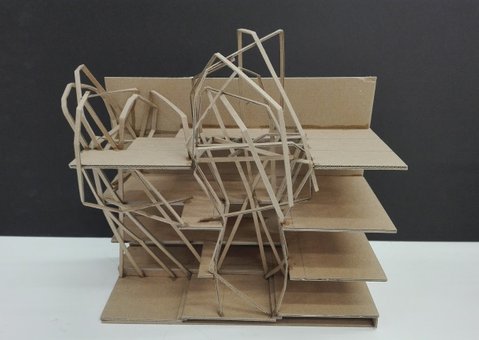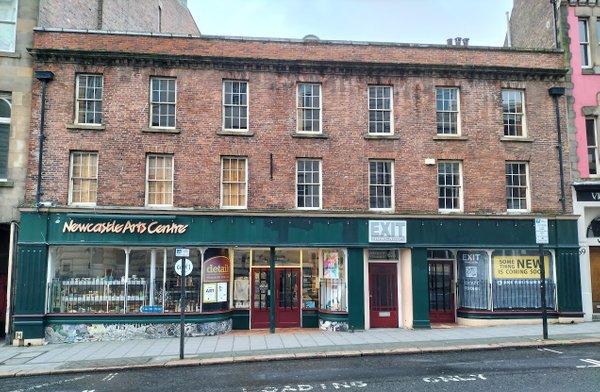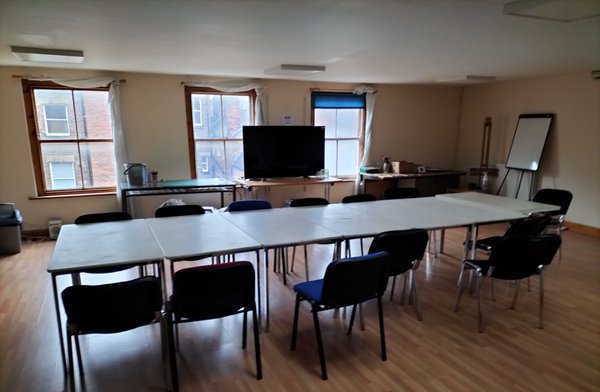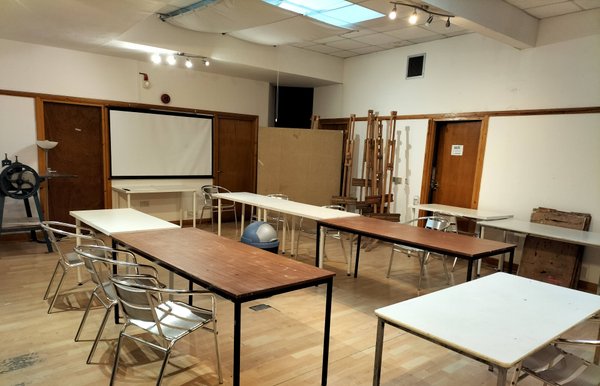arceed.com
succeed in architecture
Courses in Architecture and Design
Resources for Studies in Architecture
Architecture Blog
Experiences and Opinions
designed and developed by
Thomas Kern
Dipl.-Ing. Architect (ARB)
Lecturer and Educator in Architecture
Copyright © All Rights Reserved
Welcome!
Would you like to prepare to study architecture or a related field?
Do you need to create a portfolio for applying to study architecture at university?
Would you like to experience what it feels like to study architecture in the UK and Newcastle upon Tyne?
Are you already studying and would like to further develop your skills and self-confidence?
Would you like to switch to studying architecture?
Then the arceed.com courses are just right for you!
Based on decades of experience in the practice and teaching of architecture, we offer inspiring and engaging courses tailored to your individual needs and the specific requirements for studies in architecture and related fields of study.
The courses cover FHEQ Level 3 to FHEQ Level 4. The content relates to the ARB Education Criteria Part 1 and the RIBA Education and Development Framework.
Why arcced.com?
Main Focus is YOU
Your needs for your future career in architecture are our focus! The courses are specifically designed to provide you with a solid initial foundation.
Affordable and Unique.
It is the first preparatory architecture course program in the Northeast of England and Newcastle upon Tyne, rich in stimulating architectural and cultural heritage, aiming to provide an excellent yet affordable learning experience.
Peer-Learning is the central learning methodology.
This is about learning as a shared journey and not the usual academic teacher-learner relationship. No long, boring lectures. Students contribute to teaching and teachers learn from students.
International and diverse.
We welcome students from all backgrounds and cultures. Creativity thrives where there is a variety of experiences and opinions. Teaching materials are geared for an international student community.
Student project: Structural Exploration
Student project: form, structure, space and light
Student project: ribbon dance inspired shelter
Student project: contrasting space dynamics
Courses 2024 -2025
2024
22nd July - 2nd August
10 days
age 16 - 25
Course Fee £759
2024
27th August - 6th September
10 days
age 16 - 25
Course Fee £759
2025
21st April - 25th April
5 days
age 16 - 25
in preparation
more courses to follow soon
Architecture Summer School 1
"Explorer and Designer"
22nd July - 2nd August
This 10-day course is designed to help you develop an architecture portfolio, either for entry into studies in architecture (or related subject) or for transferring into architecture from another study subject. In addition to key skills and techniques, the course content introduces you to the contextuality of architectural design as well as ecological, socio-cultural and economic contexts. The tasks are designed to help you gain self-confidence and discover your personality as architectural designer.
Topics
Where and when: Personal experiences in architecture.
Human inhabitation and environment: Observing and recording.
Mind worlds: Transforming imagination into creative output.
Tools and techniques: Sketching, drawing, and modelling.
Build: Structures, materials, and atmospheres.
Space in the city: How to make a better urban environment.
Communicating and curating: The architectural portfolio.
Aims
To gain a contextual understanding of how architecture is created, how it develops and what effects it has.
To understand and apply key aspects of studies in architecture and about the architects profession.
To learn key principles of sustainable architectural design, using the classical methods and techniques such as sketching, drawing and modelling.
To learn how to perceive and evaluate ideas, and how to synthesise ideas and concepts into physical form.
To learn principles of architectural representation, principles of plan, section and elevation.
To know and apply basic principles of materials and construction.
To understand principles of preparatory research such as site analysis and urban context.
To know and apply principles of ergonomics, to know key dimensions and measures.
To grow your professional interpersonal skills through peer learning and teamwork.
To critically reflect and to formulate contributions in architecture.
To understand and apply the principles of an architectural portfolio.
To have fun and experience how wholesome and satisfying architectural design can be!
Outcome
An architectural design portfolio.
Feedback with suggestions for future development.
A certificate of participation based on your engagement with programme tasks.
Course Information
Maximum group size: 15
Duration: 10 working days, 6 - 7 hrs contact time per day
Course fee: £759
Deposit: £190
Architecture Summer School 2
"Explorer and Designer"
27th August - 6th September
This 10-day course is designed to help you develop an architecture portfolio, either for entry into studies in architecture (or related subject) or for transferring into architecture from another study subject. In addition to key skills and techniques, the course content introduces you to the contextuality of architectural design as well as ecological, socio-cultural and economic contexts. The tasks are designed to help you gain self-confidence and discover your personality as architectural designer.
Topics
Where and when: Personal experiences in architecture.
Human inhabitation and environment: Observing and recording.
Mind worlds: Transforming imagination into creative output.
Tools and techniques: Sketching, drawing, and modelling.
Build: Structures, materials, and atmospheres.
Space in the city: How to make a better urban environment.
Communicating and curating: The architectural portfolio.
Aims
To gain a contextual understanding of how architecture is created, how it develops and what effects it has.
To understand and apply key aspects of studies in architecture and about the architects profession.
To learn key principles of sustainable architectural design, using the classical methods and techniques such as sketching, drawing and modelling.
To learn how to perceive and evaluate ideas, and how to synthesise ideas and concepts into physical form.
To learn principles of architectural representation, principles of plan, section and elevation.
To know and apply basic principles of materials and construction.
To understand principles of preparatory research such as site analysis and urban context.
To know and apply principles of ergonomics, to know key dimensions and measures.
To grow your professional interpersonal skills through peer learning and teamwork.
To critically reflect and to formulate contributions in architecture.
To understand and apply the principles of an architectural portfolio.
To have fun and experience how wholesome and satisfying architectural design can be!
Outcome
An architectural design portfolio.
Feedback with suggestions for future development.
A certificate of participation based on your engagement with programme tasks.
Course Information
Maximum group size: 15
Duration: 10 working days, 6 - 7 hrs contact time per day
Course fee: £759
Deposit: £190
Architecture Spring School
"Encounters with Architecture"
21st April - 25th April 2025
This is a 5-day introductory course venturing into the fascinating world of architecture. This course aims to stimulate curiosity, to grow key skills and gain awareness for the challenges in architecture. You will encounter the creative freedom as well as technicality of architectural design. A mixture of studio-based activities and outdoor activities are the creative platform to generate relevant and inspiring outcomes.
Topics
Environment and architecture: Observing human interaction.
Space and form: What makes Architecture.
Tools and techniques: Sketching, drawing, and modelling.
Build: Structures, materials, and atmospheres.
Making Sustainable Architecture: Architect for a day.
Aims
To gain a contextual understanding of how architecture is created, how it develops and what effects it has.
To gain an initial understanding about key aspects of studies in architecture and about the architects profession.
To learn key principles of sustainable architectural design, using the classical methods and techniques such as sketching, drawing and modelling.
To learn how to perceive and evaluate ideas, and how to synthesise ideas and concepts into physical form.
To grow your professional interpersonal skills through peer learning and teamwork.
To have fun and experience how wholesome and satisfying architectural design can be!
Outcome
The basis for an architectural design portfolio.
Feedback with suggestions for future development.
A certificate of participation based on your engagement with programme tasks.
Course Fees and Information
Maximum group size: 15/15
Duration: 5 working days, 6 - 7 hrs contact time
Course fee:
Deposit:
Equipment
Suggested equipment you should have
Standard Equipment for Drawing, Sketching and Modelling
Pencils 6B - 4H
Set of colour Pencils for illustrations
Set of water colours and brushes for illustrations
Eraser and sharpener
Metal ruler at least 30 cm for cardboard cutting
Fine liner pens 0.1, 0.3, 0.5
Sketchbook A5 or A4
Camera/mobile phone camera
Laptop for arranging a digital portfolio
And any other equipment you prefer.
Please note: For some tasks we discourage the use of drawing tablets as it restricts the manual-sensory skill development.
Provided
The equipment and materials below are provided
Cutting matts
Snap-off-blade cutting knives
Robust scissors
Certain amount of materials will be provided per student
PVA glue
Masking tape
Cardboard
Foam board
Timber sticks
Plasticine
Watercolour paper
Watercolour jars
In case of over extensive material use, you need to buy additional materials from the in house art store.
About
Engaging with Architecture
I am an experienced and enthusiastic architect, lecturer and educator in architecture with extensive practical experience and many years in architectural education.
Over the last 15 years I have trained hundreds of students, many of whom went on to successful careers in architecture in renowned architectural firms.
For more than 10 years I developed and directed the INTO Newcastle University Architecture programme, a three pathway preparatory programme tailored for international students. I continue to contribute to teaching at all levels in Newcastle University's School of Architecture.
Students who apply to study architecture are often ill-prepared and overwhelmed by the complexity of the subject. For this reason, I decided to provide a more affordable and personal platform to support students venturing into architecture.
A lot has changed in the field of architecture since I studied architecture at the University of Stuttgart (Germany) in the late 1980s. Most striking is the urgency for sustainable design as well as digitalisation (CAD) and the interlinking processes (BIM).
However, many centuries-old principles of architecture remain unchanged and deserve to be rediscovered and applied.
Our ancestors had admittedly a greater awareness and appreciation for simple qualities such as shelter, light, warmth, clothing and food. Therefore, it makes sense to rediscover and reinterpret these concepts as source for inspiration. Many great architects formed their concepts and manifestos based on the vernacular tradition.
With regard to sustainability, many topics were already known during my time as a student, as were the technical and methodological solutions to address these problems.
It is sobering to note how little has been implemented in terms of application and legislation. At the same time, I notice that in architecture education at universities a lot of energy and time is spent on less relevant theoretical and abstract aspects. Therefore, my focus is on practical application, 'thinking through making' rather than being absorbed by abstract theories and speculative research.
In three decades as a practicing architect, I have had the opportunity to design and contribute to a wide range of buildings in the UK and Germany. In nearly two decades as an educator and lecturer in architecture, I have gained an important insight: our future depends on what we teach the next generation and how we listen and learn from the younger generation, just as we did from our mentors. We remain learners, whether we are teachers or students.
As we live in a time of accelerating change and struggle to keep up, anchoring our manual skills and holistic physical engagement is critical. This is particularly true for students who have to cope with increasing distance from physical activity over the course of their studies. Architecture is an inherently physical-sensory subject. Understanding construction and architecture requires physical effort. Therefore, my approach to teaching architecture is focused on application skills and physical experience.
In this respect, architectural training could be compared to the training of a musician learning an instrument. The metamorphosis of imaginative mind into physically perceived reality. And when done well, it is a joy for everyone. Tangible results express our feelings and create satisfaction and self-confidence. This is the essence of my personal teaching approach.
Team
Thomas Kern
Architect, Lecturer and Course Leader
The majority of Thomas's career has been dedicated to practice, decades of extensive experience in all aspects of the architectural profession. Education is now his main focus. He developed several university courses programmes and multiple modules. Next to architectural design Thomas taught technology, theory and history and architectural representation on different levels over many years. He is specialist from preparatory programmes and for international education.
"What is important is what I can apply from theoretical knowledge in a well-founded manner.
I am an avid supporter of application-oriented studies. My focus is on the students and their current and future needs, in their studies as well as later in practice. By integrating students and experienced professionals, a powerful symbiotic learning environment is created. The result is the best possible preparation for current and future challenges.”
Brian Tse
Studio Tutor
Currently studying Architecture at Newcastle University.
Brian has a Business and Management degree from Hong Kong and gained professional experiences in this field.
An outstanding performance in a pre-master's program led to studying architecture from the ground up and not taking the shortcut of an non-accredited master's program.
His extensive international experience, exceptional professionalism and outstanding skills make him an asset to any peer learning based studio session.
"I believe technical proficiency is the key to cultivate creativity. With my experience in drawing, CAD software, and model-making, I am eager to share my expertise with aspiring individuals. Together, we will embark on a transformative journey where knowledge serves as a pathway to limitless creativity."
Dora Saidkhodjaeva
Studio Tutor
Currently studying Architecture at Newcastle Univeristy
Dora joined the BA architecture programme at Newcastle University after an art and design foundation at Manchester University, followed by an excellent performance on the International Year One programme at INTO Newcastle University.
Her acumen and professionalism set her apart and enable her to make valuable contributions to every studio session.
Dora has also gained considerable experience in architectural firms, well above the average in her peer group.
“In my opinion, innovative design comes from a committed and iterative design process. The journey from ideas and concepts to physical form can involve many activities and experimenting with them encourages innovative thinking. I am excited to contribute to this journey and share my skills and experiences I have gained so far.”
Testimonials
Ray Verrall
Architect, Lecturer and Researcher
Newcastle University
"Thomas Kern is a natural educator.
Not only does he care deeply about every student that enters his classroom, but he knows how to connect with them personally and draw out their individual talents.
His teaching is practical, focused on harnessing the sensory lessons that only physical sketching, drawing, and model-making can provide; but the underlying philosophy supporting these practical approaches is rooted in a poetic understanding of architecture as atmospheric environment.
From my personal experience teaching alongside Thomas for several years, I can’t imagine a better person to guide a student’s first steps in architectural studies."
Daniel Goodricke
Assistant Professor in Architecture
Northumbria University
"Thomas Kern is a passionate and caring educator, sensitive to the diverse learning preferences and needs found amongst architecture students.
The transition from high school to university can be large, and arguably larger for those choosing to study architecture than many other disciplines. Despite increasingly stringent entry requirements at university-level, the portfolio remains the most useful diagnostic to architecture schools. Not just in terms of initial entry but likelihood of success.
The fact that all the offered courses, whether four, nine or ten days, look to develop a portfolio is a distinct advantage to any aspiring architect at the start of their journey.
At a time of educational reforms characterised by increasingly demanding technical criteria, it is refreshing to see such course programmes aimed at coupling individual creativity with an understanding of the humanities.”
Dora S.
Year One Student 22/23
“I had the privilege of having Thomas as a lecturer and seminar leader for the history and culture module in my first year. He brings his wealth of professional experience from different countries into his teaching, making his teaching stimulating and exciting. Even a short conversation with Thomas is very insightful and his passion for the topic is very inspiring.”
Terms and Conditions
Entry Requirements
You should have a keen interest in the fields of architecture, art and design, and the built environment. You must be willing to engage in practical tasks and participate in group assignments. Good art and design related skills are appreciated, but are not a requirement. We welcome international participants and participants from divers cultural backgrounds. This is reflected in the course materials and teaching method. The course fees are the same for domestic and foreign students.
Age of 18+
If you register for this course yourself you should be 18 years of age. The maximum age we accept is 25. You are required to provide your accommodation address and telephone number in case we need to contact you close to the start date. We recommend that you check the status of your booking and course availability before booking your trip. You must agree to provide contact information in the event of an emergency, such as your parents, guardians, supporters or sponsors who have a responsibility to support you.
Age of 16+
If you are 16 years of age on the day the course begins, you can take part in the course on the condition that parent or guardian consent for you to participate and that your parent or guardian resumes the responsibility and duty of care after course hours. By signing the consent form, the parent, guardian or person with parental responsibility agrees that you will participate in all planned activities, including excursions. The declaration of consent also requires the accommodation address and an emergency contact to be provided.
International Students
If you are an international student, it is your responsibility to meet any visa and travel requirements.
If you do not hold a UK, EU or EEA passport you must check with the UK Border Agency regarding visas before you make your booking:
www.ukvisas.gov.uk
Visa applications can take time. If you do not leave sufficient time to obtain a visa once you have booked, you will not by right be eligible for a refund.
All classes are delivered in English.
As a guide you should have an IELTS score of at least 6.0 to be able to follow the contents and instructions.
Booking and payment
All payments are made through the secure payment link using Credit Card, PayPal or Google Pay.
To secure a place on the course, a 25% deposit is required.
The remaining 75% must be paid 2 weeks before the start of the course. The course fee must paid in full to attend the course. Once the deposit is processed you will receive a confirmation email securing your enrolment on the chosen course. By enrolling on the course and paying the deposit, you agree to the terms and conditions. In case you are under 18, your parents or guardian must agree to the terms and conditions.
Cancellation
If you wish to cancel your participation more than 30 days prior to the start date, your deposit will be refunded minus a 50 £ administration fee.
Where a cancellation is made less than 30 days prior to the start date of your course, you won't be entitled to a refund.
In case you are unable to attend sessions or the course due to illness or unforeseen personal or professional reasons, you will not be eligible for a refund, additional tuition, or a course transfer.
It is your legal obligation to be at all times comprehensively insured for all eventualities in connection with the attendance of the course programme, such as travel and accommodation costs, loss or damage, or any other arising costs. We won't be liable for any losses (including, but not limited to, travel and accommodation costs) arising as a consequence of any modification or cancellation of courses or timetabling constraints beyond the cost of the course fee.
In the unlikely event that we must cancel a course for unforeseen reasons, we will inform you as soon as possible. In this case you are eligible for a full refund of the course fee only.
Attendance
You are expected to attend all scheduled classes on time ensuring your attainment and usable outcomes. Non-attendance of classes due to illness or for personal or professional reasons doesn't provide the right to a refund, extra tuition, or a transfer. You'll need to have a 100% attendance record in order to qualify for the course certificate.
If you are 18+, in case of Person Extenuating Circumstances (PEC) such as sever illness or unexpected and unavoidable personal circumstances, you must inform the course leader who authorises your absence.
If you are under 18, you must attend all courses. In the event of illness, your parents or legal guardians must inform the course instructor personally before the course begins. Failing to do so may lead to missed person report to the police.
Attitude
It is expected that you are ready to fully engage in the course programme, follow the instructions and guidance of the tutors and that you are interested in learning and taking advantage of the peer learning experience. We follow and enforce strict behavioural guidelines to ensure a safe, friendly and inspiring learning environment. Therefore, all participants are expected to behave professionally, inclusively and respectfully at all times.
Intimidating or discriminatory behaviour, the consumption of alcohol or drugs during class time, and attending under the influence of alcohol or drugs are strictly prohibited. Parents or guardians will be contacted if there are any concerns or other behavioural concerns. Depending on the severity of the violation, you may be reported to the police. Violation of these rules will result in immediate exclusion without any right to a refund or any costs incurred as a result of the withdrawal.
Health and Safety
It is your obligation to be sufficiently equipped with appropriate clothing and footwear for safely conducting practical tasks for attending field trips, to have the necessary funds for sustenance for lunch and coffee breaks.
You will be expected to follow the health and safety instructions of your tutors at all times. Failure to follow health and safety instructions may mean that you cannot participate in certain activities.
Disability and Learning Impairments
Although we welcome applications from students with disabilities, we are not currently equipped to deal with more serious physical or learning disabilities. Any disability or impairment should be disclosed confidentially when you apply so that we can make an informed decision about whether the course is suitable for you.
The term “disability” refers to mobility difficulties, mental health problems, autism/Asperger's syndrome, chronic fatigue syndrome/ME, visual/hearing impairment, learning difficulties such as dyslexia and dyspraxia, and conditions such as epilepsy, asthma and life-threatening allergies.
Data protection
We follow the current EU General Data Protection Regulation (GDPR). All personal data and information will be held securely and dealt with according to GDPR guidelines. Data will be shared only with course tutors. We won’t share any personal data with third parties unless required by law.
For promotional purposes we may ask you to consent to the use of photos, video recordings, outcomes, feedback, and personal statements with a consent form or in context with your application. We will not share your personal information with any third parties unless required by law, nor will we sell your details.
Force Majeure
We are not liable for failure to deliver the courses if such failure is as a result of fire, floods, earthquakes, storms, hurricane or other natural disaster, war, invasion, act of foreign enemies, hostilities (regardless of whether war is declared), civil war, rebellion, revolution, insurrection, military or usurped power or confiscation, terrorist activities, nationalisation, government sanction, blockage, embargo, labour dispute, strike, lockout or interruption or failure of electricity or telephone service.
Contact
Please use the contact form for any inquires.
Or send us an email
Location
Newcastle Arts Centre
The practical studio spaces are located on the 2nd floor in the Newcastle Arts Centre (accessible), close to the Central Station, the City Centre and the many attractions and landmarks of Newcastle upon Tyne.
The Newcastle Metro links the airport conveniently with the Central Station and the City Centre. There are several hotels within short walking distance.
Newcastle Arts Centre is a cultural venue combining practical studio facilities, a well stocked art-material store, a craft and gift shop, an art gallery and music venues.
Nearby are numerous contemporary and historic landmarks, surprising perspectives and street views provide an exciting and stimulating study environment. The medieval street pattern and the engineering wonders of the industrial revolution demonstrate how the city evolved through the centuries.
Newcastle has a remarkable range of free admission art galleries and museums, evidencing the rich heritage and creative energy of the region.
Newcastle University campus and the Northumbria University campus are also in walking distance. Both university provide RIBA accredited architecture study programmes.
For students travelling from abroad, Newcastle has excellent public transport links. There are many direct flights to Newcastle International Airport, and there are frequent train connections to London (ca. 3 hrs), Manchester (2 hrs) and Edinburgh (1.15 hrs).
Newcastle Arts Centre Westgate Road 67
Studio Space Newcastle Arts Centre
Studio Space Newcastle Arts Centre
